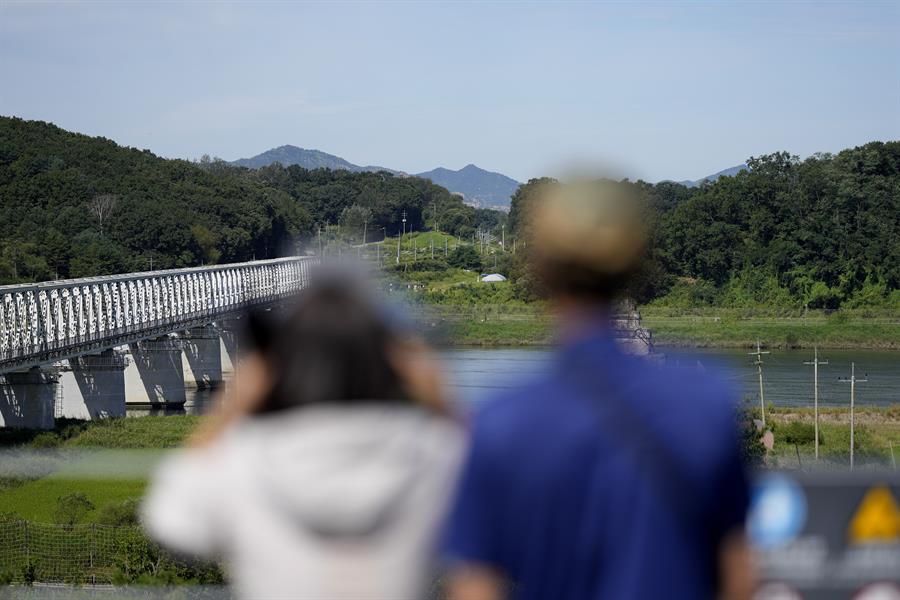
North Korea has passed a law declaring its readiness to launch preventive nuclear strikes, including in the face of conventional attacks, state media said on Sept. 9.
The move effectively eliminates the possibility of denuclearisation talks, with leader Kim Jong Un saying the country’s status as a nuclear state was now "irreversible".
The announcement comes at a time of heightened tension between North and South, with Pyongyang blaming Seoul for the outbreak of Covid-19 in its territory and conducting a record number of weapons tests this year.
The newly enacted law says North Korea can carry out a preventive nuclear strike "automatically" and "immediately to destroy the hostile forces" when a foreign country poses an imminent threat, the official Korean Central News Agency (KCNA) said.
The law specifically states the North can use nuclear weapons "in case of a nuclear or non-nuclear attack by hostile forces on the state leadership and the command organization of the state’s nuclear forces", among other situations, according to state media.
"The status of our country as a nuclear weapons state has become irreversible", Kim said, KCNA reported.
The law "publicly justifies Pyongyang’s use of its nuclear power" in the event of any military clash, Cheong Seong-chang of the Center for North Korea Studies at the Sejong Institute told AFP.
As the North’s dictator, "Kim Jong Un does not need laws to launch a nuclear strike", but the new law serves as a way to "vindicate Kim’s use of nuclear weapons in case of emergency by disclosing the principles of nuclear use at home and abroad in advance," he added.
Kim in July said his country was "ready to mobilise" its nuclear capability in any war with the United States and the South.
He reiterated that Pyongyang would never give up the nuclear weapons it needed to counter hostilities from Washington, claiming the United States was seeking the "collapse" of his regime.
Nuclear talks and diplomacy between Washington and Pyongyang have been derailed since 2019 over sanctions relief and what the North would be willing to give up in return.
"There is absolutely no such thing as giving up nuclear weapons first, and there is no denuclearisation and no negotiation for it," Kim said during a speech at North Korea’s rubber-stamp parliament on Thursday, KCNA reported.
A blitz of North Korean weapons tests since January included the firing of an intercontinental ballistic missile at full range for the first time since 2017.
Washington and South Korean officials have repeatedly warned that the North is preparing to carry out what would be its seventh nuclear test.
Yang Moo-jin, a professor at the University of North Korean Studies, said the North’s latest announcement clearly reaffirmed Pyongyang’s stance -- that nuclear negotiations are no longer on the table.
"Pyongyang is likely to form closer ties with China and Russia against Washington, and ... launch its seventh nuclear test in the near future," he told AFP.
In Washington, the State Department said it remains focused on the objective of "the complete denuclearisation of the Korean peninsula".
"We have made clear we have no hostile intent" toward North Korea, a spokesperson said, but added that Pyongyang continues to ignore overtures for talks.
"The United States remains fully committed to the defence of the Republic of Korea (South Korea) using the full range of US defence capabilities," the spokesperson said.
Seoul, Washington’s key security ally, last month offered Pyongyang an "audacious" aid plan that would include food, energy and infrastructure help in return for the North abandoning its nuclear weapons programme.
But Pyongyang ridiculed the offer, calling it the "height of absurdity" and a deal the North would never accept.
South Korea’s hawkish President Yoon Suk-yeol said last month that his administration had no plans to pursue its own nuclear deterrent.